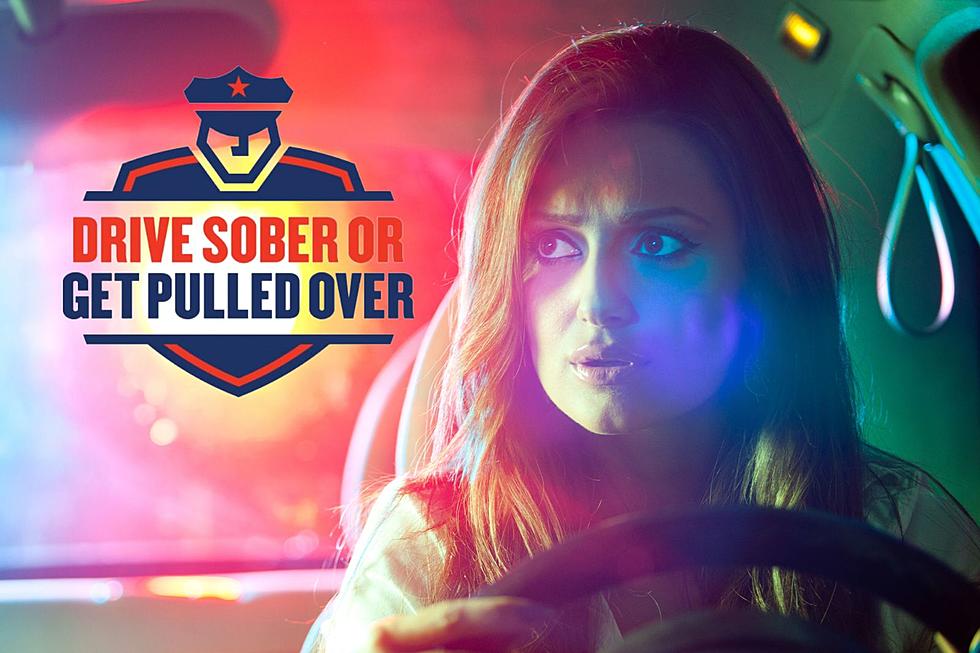
Illinois, Iowa, & Wisconsin Law Enforcement Cracking Down on Impaired Drivers
The U.S. Department of Transportation’s National Highway Traffic Safety Administration (NHTSA) is working alongside local law enforcement during the weeks leading up to, and including, the Labor Day holiday in support of the national "Drive Sober or Get Pulled Over" high-visibility enforcement drunk-driving prevention campaign.
Tri-State Law Enforcement across Illinois, Iowa, and Wisconsin will be expanding their efforts with zero tolerance for impaired driving. The goal is to save lives during what is usually a dangerous holiday on our nation’s roads. The campaign is currently underway, beginning on August 16th and running through September 4th.
According to stats from gobankingrates.com Americans celebrate Labor Day, by drinking an average of 3.2 alcoholic beverages, according to Alcohol.org. In the year 2016, the National Beer Wholesalers Association ranked Labor Day as #3 in its list of beer sales holidays. In fact, in 2020, the week leading into Labor Day showed alcohol sales up 6.5% compared to the same week in 2019, according to Nielsen. Spirits sales were up 33.4% and wine was up 17.9% in the same week.
As you celebrate, keep these nationwide statistics in mind:
- During the 2021 Labor Day holiday period there were 531 crash fatalities nationwide. Of these 531 traffic crash fatalities, 41% (216) involved a drunk driver, and more than a quarter (27%) involved drivers who were driving with a BAC almost twice the legal limit (.15+ BAC).
- Among drivers between the ages of 18 and 34 who were killed in crashes over the Labor Day holiday period in 2021, 46% of those drivers were drunk, with BACs of .08 or higher.
- Historically, the summer months tend to be more dangerous on the roads. In August 2021, drunk driving accounted for 31% of traffic crash fatalities.
- Approximately one-third of all traffic crash fatalities in the United States involve drunk drivers (with BACs at or above .08 g/dL). In 2021, there were 13,384 people killed in drunk-driving crashes.
- Nationally, it is illegal to drive with a BAC of .08 g/dL or higher, except in Utah, where the limit is .05 g/dL.
- Although it’s illegal to drive when impaired by alcohol, in 2021 one person was killed every 39 minutes in a drunk-driving crash on our nation’s roads.
- The rate of alcohol impairment among drivers involved in fatal crashes in 2021 was 2.8 times higher at night than during the day.
- Males are more likely than females to be driving drunk when involved in fatal crashes. In 2021, 22% of males were drunk, compared to 17% of females.
What can Drunk Driving Cost You?
- The average DUI costs $10,000 in attorney’s fees, fines, court costs, lost time at work, higher insurance rates, and more.
- The financial impact of impaired-driving crashes is devastating. Based on 2019 numbers, impaired-driving crashes cost the United States $58 billion annually.
- If you’re caught drinking and driving, you can face jail time. That arrest will follow you for many years to come.
- Drinking and driving can cause you to lose your driver’s license and your vehicle. This could prevent you from getting to work, resulting in lost wages and, potentially, job loss.
How can you plan for safe travel this upcoming holiday weekend?
- Always drive 100% sober. Even one alcoholic beverage could be one too many.
- Plan ahead: Before you have even one drink, designate a sober driver to get you home safely. If you wait until you’ve been drinking to make this decision, you might not make the best one.
- You have options to get home safely: designate a sober driver or call a taxi or rideshare. Getting home safely is always worth it.
- If it’s your turn to be the designated driver, take your job seriously and don’t drink.
- If you see a drunk driver on the road, contact local law enforcement.
- If you have a friend who is about to drink and drive, take the keys away and let a sober driver get your friend home safely.
Who You Gonna' Call?
Looking for that increasingly elusive Designated Driver? Your billfold got you into this mess at the bar and it can get you out. Contact your local Lyft or Uber drivers for a quick, and much cheaper option than a DUI. Other area services include #1 Green Cab, The Jule and other city transportation, and Bell Taxi to name a few.
Are DUI Checkpoints Legal in Illinois, Iowa, and Wisconsin?
Sobriety checkpoints, also called DUI checkpoints, are temporary roadblocks that law enforcement officers use to screen motorists for drunk driving-related offenses. Thirty-eight states in the country utilize sobriety checkpoints, while twelve states do not. For states that permit the practice, the legal basis for a DUI checkpoint is typically grounded in the federal constitution in addition to the state constitution.
Generally, DUI checkpoints must be:
Remember, field sobriety tests are voluntary, but an officer will usually follow up that request, with a request for a chemical test. If that test is refused there will be consequences. Although a driver may not be compelled to undertake a chemical test, refusal to do so can subject the driver to penalties. This is because most states have implied consent laws and someone who drives in the state automatically consents to chemical tests upon being arrested for drunk or high driving. Since a driver who refuses to complete a chemical test violates the implied consent arrangement, almost every state imposes a mandatory driver’s license suspension on the driver. This may vary in length from six months to a year.
LOOK: The biggest scams today and how you can protect yourself from them
CHECK THEM OUT: States With the Best and Worst Commutes
More From Eagle 102.3









